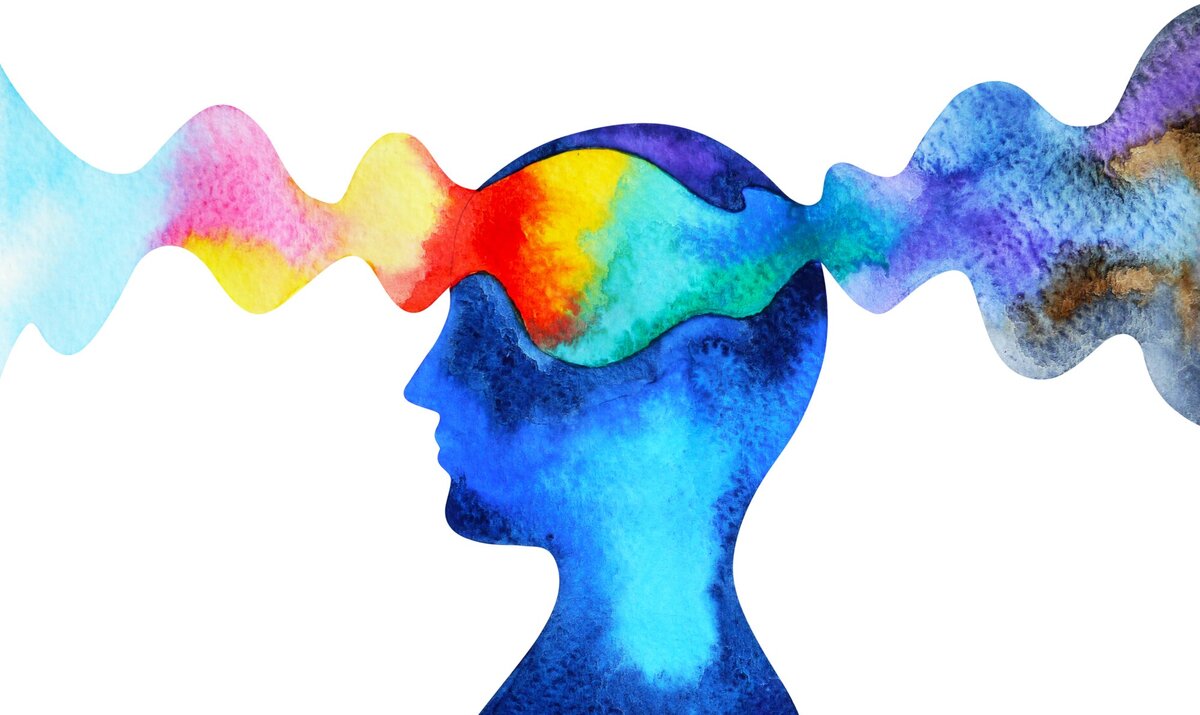
How Practicing Mindfulness Can Strengthen Addiction Recovery
Photo from Getty Images
Originally Posted On: How Mindfulness Can Help With Addiction Recovery – Addiction Freedom Now
Addiction is widely regarded as a terrible disease, yet it remains very misunderstood. Most of us understand the way physical dependency works. However, the truth of the matter is that addiction takes hold of people in far more insidious ways. Oftentimes the root of the addiction is mental, and if those issues aren’t addressed, it will be very difficult for someone to recover. Conversely, if they can achieve a healthy mental and emotional state, it will be much easier for them to confront the physical pain and discomfort involved in successfully fighting addiction. One extremely effective way to do this is via the Buddhist practice of mindfulness. Many have found this practice to be a key motivator on their path to recovery. But what exactly does mindfulness entail, and how does it empower people to recover from addiction?
What Is Mindfulness?
In the simplest of terms, mindfulness refers to the concept of focusing solely on the present. To be helpful, this must be accomplished with great mental discipline. Rationally, we can tell ourselves that it’s helpful to concentrate only on the here and now, but it is extremely hard not to let our thoughts wander toward the mistakes of our past or anxieties for the future.
Mindfulness was originally shared as a way of achieving complete spiritual enlightenment as a part of Buddhism. By letting go of everything beyond the present moment, the Buddha was able to ascend to a different state of mind. However, despite its long and ancient history, modern scientists have recognized the value of this practice for a variety of purposes, including the treatment of addiction. Various academic texts, including this article published in the Addiction Science & Clinical Practice journal and made available by the US National Library of Medicine and National Institutes of Health, have confirmed its validity and potential, and as a result, mindfulness is commonly included as a component in multiple different forms of therapy. There is no denying that this practice can be a powerful aid in the process of rehabilitation.
The Mindfulness-Recovery Connection
 Photo from Getty Images
Photo from Getty Images
While mindfulness can certainly be applied in other aspects of life, it has been recognized for its particular usefulness in helping individuals recover from addiction.
So, what is the connection between these two things?
When people seek out the sources of their addiction, this behavior is generally driven by a desire to use those sources for a specific purpose. Consuming the source of the addiction is more than a mere act of reckless recreation. Instead, people often seek out these substances in order to afford themselves an escape from the anxiety-inducing intensity of daily life.
Society constantly bombards individuals with messages about all the things they should be doing to better themselves and help their loved ones, and this can create an unimaginable amount of pressure. Mindfulness allows for a healthy way to relieve that pressure and achieve a sensation of joy and peace. In addition to providing us with alternate answers to destructive behaviors, mindfulness is also the tool that allows us to recognize those behaviors in the first place.
How Mindfulness Can Help
This is all accomplished within the practice in a variety of smaller ways. Some of the more specific benefits of practicing mindfulness on a regular basis include arming you with the ability to detect when you are experiencing cravings and what triggers are responsible. Mindfulness has a tendency to help people become more aware of their bodies, encouraging people to embrace healthy habits that make their bodies stronger. It also provides you with the mental fortitude to process thoughts of relapsing and gives you a strong support system.
Overall, this practice essentially achieves two things. Helping people gain a better appreciation for their present state and surroundings and become more introspective. This combination allows people to recognize what is causing them to seek out unhealthy coping mechanisms and address those issues while simultaneously providing them with better outlets.
If you have never practiced mindfulness before, it can be difficult to fathom how this can be an effective solution. The key is that this method takes advantage of the fact that the mind is an incredibly powerful organ and is responsible for shaping our reality. If we aren’t careful, this can cause us to become entrenched in a painful, stressful, hopeless state. However, by changing the way we think, we can actually alter that reality into something positive and beautiful.
Three Tips to Begin Practicing Mindfulness
 Photo from Getty Images
Photo from Getty Images
Achieving your end result could take time and discipline to complete, and such a prospect can make you feel intimidated or unsure of how to begin. Fortunately, there are a few simple techniques to help new practitioners embrace mindfulness and start using it more often in their daily life. By reviewing these techniques, you can make real progress towards applying mindfulness in a productive manner and start your journey towards recovery.
1. Become More Aware of Your Surroundings
Mindfulness is all about focusing on the present, but this isn’t how our brains generally behave. In an effort to address any potential danger or complication, we consistently project ourselves towards the future by leaps and bounds, and in the process, subject ourselves to high amounts of stress and anxiety over the uncertainty involved in facing potential dangers and complications in the future. Changing the way we think can be a lengthy process, but beginners can do this by starting small and focusing on very specific elements of the present.
This can be done by concentrating on specific sensory input you are currently receiving. Consider the physical sensations your body is experiencing, including the feeling of any textures you might feel on the soul of your feet and in the palms of your hands, or the smells and flavors from your surroundings or from food or drink in your mouth.
Doing this allows you to gain a realistic visualization of the present and remain focused on it. During this process, you might find your brain wandering towards concerns of the future. When this occurs, simply redirect those thoughts in a gentle manner. Over time, this will become easier and more natural.
2. Practice Your Breathing
Breathing has always been an essential part of any form of meditation or relaxation technique. When people are experiencing panic attacks, they are often directed to adjust their breathing as a way of getting through the attack, and breathwork is a part of various therapeutic treatments. So why is breathing so important? As it turns out, the way in which you breathe can have a significant effect on your physical and mental states. When we are experiencing anxiety or fear, we often begin to hyperventilate, often unconsciously, and this causes a decrease of carbon dioxide in the blood. At a glance, this might sound like a good thing; however, your body’s natural state involves a balance between the levels of carbon dioxide and oxygen, and altering that balance can have negative impacts on your health, including lightheadedness, blurry vision, headaches, and problems concentrating.
Alternatively, breathing more deeply can effectively lower your heart rate, help to stabilize your blood pressure, and put you in a more relaxed state. In addition, concentrating on your breath is another excellent technique to remain focused on the present, as described above. This sort of exercise doesn’t have to be limited to times of crisis. Instead, try to carve out a few breaks throughout the day to work on your breathing.
3. Separate Your Thoughts From Your Reality
One of the biggest challenges of attempting to practice mindfulness is figuring out how to handle our thoughts. A big part of what keeps us from remaining in the present is our projections and imaginings in regard to the future. Oftentimes these thoughts are centered around visualizations of worst-case scenarios instead of the reality of our situation. This can make things seem far scarier and more threatening than they truly are. In order to embrace mindfulness, you need to categorize your thoughts as just that: thoughts. They are not a true reflection of what you’re experiencing, just ideas created by your brain which are causing your harm.
Pausing throughout the day to take stock of these thoughts and identify any potentially harmful messaging in your brain can help you eventually start to let go of them. During this process, the goal is to rid yourself of unnecessary negativity and quell any unrealistic fears. In doing so, you are showing compassion and kindness to yourself. This is critical to recovery. Addiction feeds off of all that judgment and pain. Letting it go will make you stronger and help you realize that you are worthy of love and care, just as much as any other person.
Remember That Mindfulness is Journey
 Photo from Getty Images
Photo from Getty Images
If you find yourself stumbling a little when first applying the above tips, that’s okay. Remember that you are striving for progress, not perfection, and that it’s natural for you to feel a little strange or out of your element when attempting new behaviors for the first time. It’s also important to adjust your expectations. Mindfulness is a lengthy process. Focusing on your breathing for just five minutes isn’t going to magically solve all of your problems. However, by making the commitment towards continuing this practice, you can develop a healthy relationship with your mind and body and empower yourself to break out of the cycle of addiction and lead a joyful life.
Community support can be a powerful aid when going through this process. Addiction Freedom Now is a place where various people recovering from addiction and their loved ones can access helpful resources, information, and helpful strategies to support their journey.
Join the Addiction Freedom Now community today and receive regular updates on new content and news directly to your inbox. We’re here for you.
